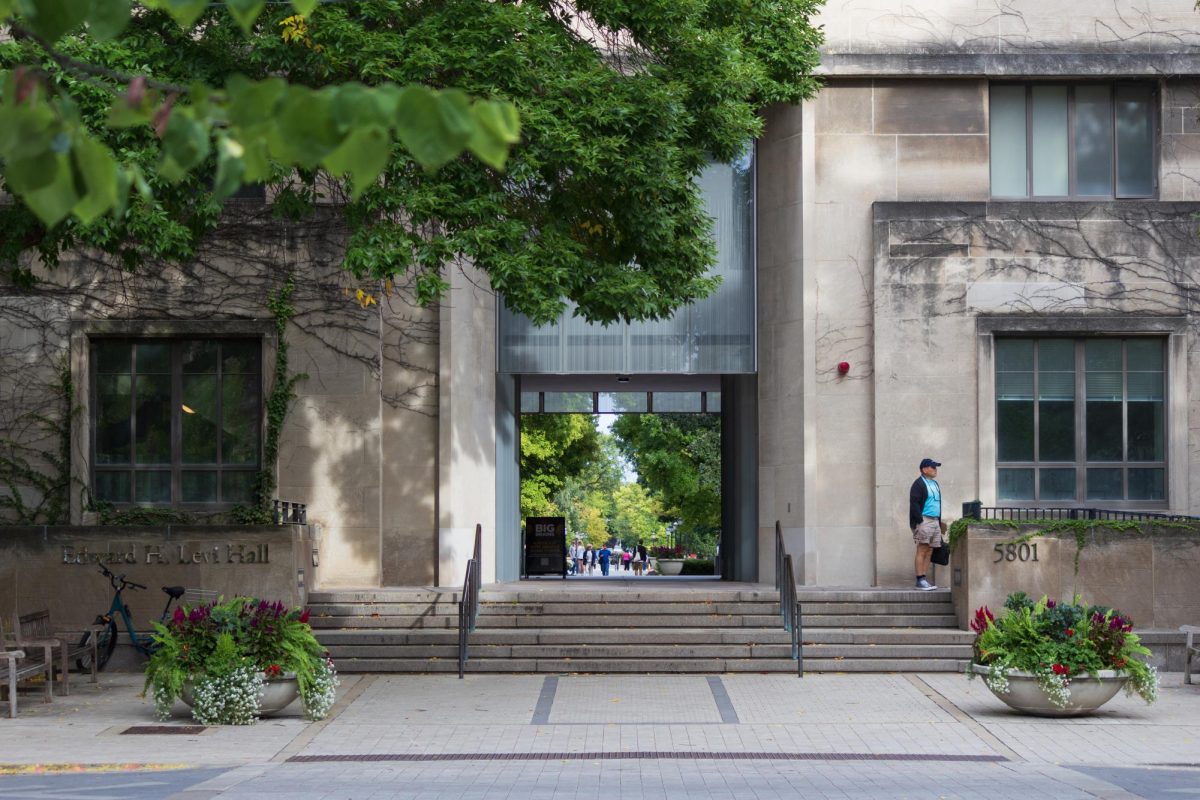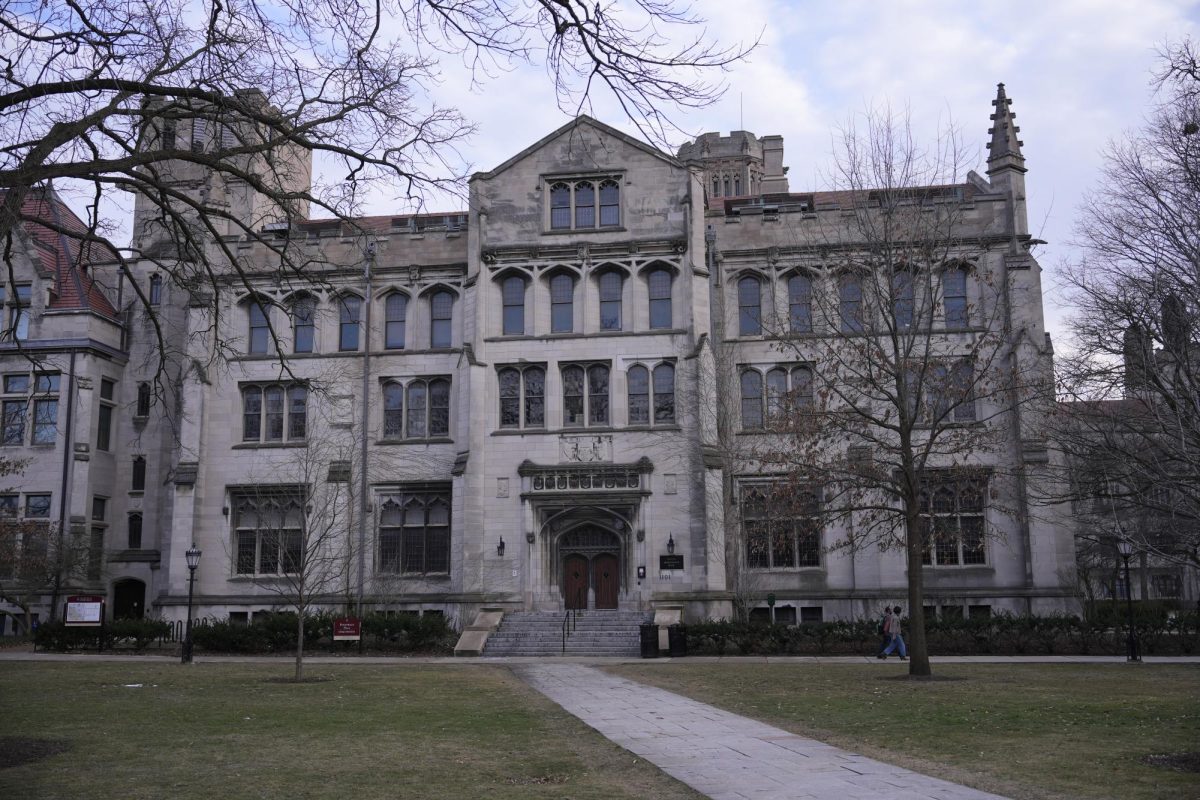A little less than two years ago, after fifteen years of training, I became an associate scientist (assistant professor equivalent), allowing me to start my own lab researching the intersection of vision and vestibular function in vision loss. As junior faculty, the majority of my career has been on the losing side of the academic power differential, rising slowly in the lab hierarchy from undergraduate, to graduate, to postdoctoral trainee. And yet, I have not often felt a loser. As a woman in academia I am aware that sexist attitudes can make differentials in position and authority all the harder to beat. And yet, I have rarely felt that misogyny related to me personally. When told stories of sexism, I have always been sympathetic, but deep down felt that each incident was just an isolated example. “She is so unlucky,” I thought. “Jerks like this are rare,” and so on. After all, I have been lucky. From my time as an undergraduate at the College, in the early 2000’s, my male mentors have never treated me as anything but a colleague; on the other hand, I have had female mentors and professors who took no interest in (and sometimes had negative consequences for) my career and gave me dubious advice about being “tough” as a woman in the workplace. I have also been lucky to have women mentors who support me with an abundance of love—sometimes tough love—but always love. Given these experiences, why, would I assume that sexism is a force in academia? Sure, there are good people, there are selfish jerks and quarrelsome and jealous busybodies, but no gender has a monopoly on those, and no profession. As I have continued on the academic path, however, my views of women’s experiences in academia have been thoroughly challenged.
When I became a parent, I was again reminded that our society is not built to support mothers in academia, or in the professional world in general, but again I failed to see it as a systemic phenomenon. I have a supportive husband who respects my passion for science and loves me all the more for it. When we became parents, his willingness to change diapers, wake up in the middle of the night, and take a greater share of pickups and drop-offs never wavered, and I got to stay late at work, write grants, analyze data, and submit manuscripts.
With motherhood came my acquaintance with an online network of mothers working in academia, who know all about the hard choices I make trying to balance my career and family life. Listening to their voices, I have become aware of how often we are unlucky as a group. It turns out, jerks aren’t rare and our hard choices are often made for us. A small change in one’s financial situation, a partner slightly less determined to prove their support, a particularly difficult pregnancy or child and our choices evaporate. Our dreams of a career we have spent decades preparing for are gone. This current pandemic is one of these changes (although not so small on the global scale). True, all of us are in this together and viruses tend to be gender-blind. And yet, we are already seeing and anticipating the differential effects of our new normal on men versus women. We see it in every sector, but I cannot personally speak to any but my own. And in science, things are not looking good for women. Although none of us are able to do experiments or travel to conferences, only some are still able to submit manuscripts or spend any respectable amount of time writing grants. Some argue that such productivity differentials are not sexism. Stay-at-home orders weren’t designed to hurt women more than men. Academics across the board are affected. All parents are homeschooling and men can cook!
And yet, I see more, clearer instances of sexism than I have in my nearly 20 years in academia. I can’t say if they are as egregious—I missed the ones before, but they are painful. Recently, I suggested that having large-scale meetings during lunchtime is difficult for those of us homeschooling our elementary school children. Many of my colleagues were sympathetic and overall the majority felt that the meetings should be moved. And then there was a dissent. I was asked why I can’t just feed my kids later or ply them with snacks? I was told that these are “subtle tricks of parenting” that I need to learn and that I need not reply to his email as no rebuttal is needed. In one short e-mail I was shamed, patronized, and silenced.
When I told my academic mom acquaintances about the incident I did it because I was frustrated, because I needed a sounding board and wanted a sympathetic ear. What I did not anticipate was the anger on my behalf and the multitude of responses, many along the lines of “I am so tired of this, I’m done.” This isn’t just my luck running out in this small instance, it isn’t a rare jerk I encountered. This is the day-to-day experience of my female colleagues. The unwillingness to accommodate our needs at this difficult time makes our jobs so much harder. The unwillingness to listen, to understand our perspective, and the need to explain what we are doing wrong is sexism. What I have come to understand is that sexism need not be malicious and misogynistic. Sometimes it is simply a lack of perspective, and unwillingness or inability to see our words from a neutral point of view. With motherhood and time spent in academia, I have collected the empirical evidence I needed and I am happy to say that my perspective has finally changed; I can finally see my friends’ words as part of a greater pattern, not just experiences unlike my own and I am here to say I am better for it.
In this time of hardship, fear and frustration, we can all take the opportunity to gain these wider perspectives so that we may be better equipped to support each other, regardless of the subset of groups to which each one of us belongs. As parents, we can struggle to find enough hours in the day while also being understanding of our childless friends’ complaints of quarantine boredom. As busy scientists, we can yearn for the normalcy of a pre-pandemic workday and yet accommodate the needs of colleagues we might view as less dedicated, as they choose to split their time between science and family. As human beings we can all make more room for a broader perspective even as our worlds narrow to the confines of our home.
Natela Shanidze is an alumna of the College.







